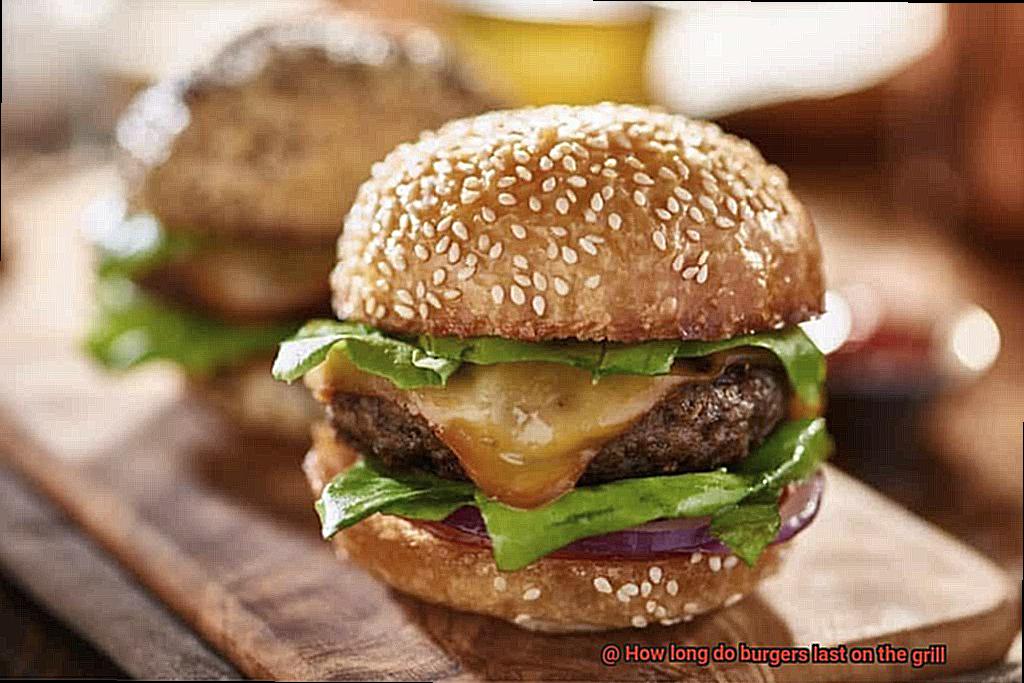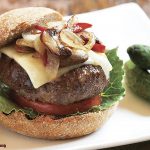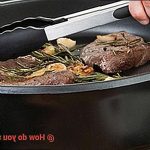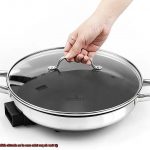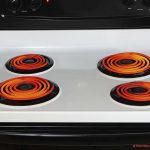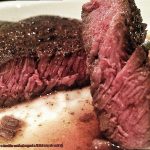Ah, summer. The perfect time to soak up some sun, enjoy the great outdoors, and indulge in some delicious grilled burgers. There’s just something about the smoky aroma and juicy flavor that makes this classic American dish a summertime staple.
But before you start flipping those patties, it’s important to know how long your burgers should stay on the grill. After all, nobody wants to end up with a dry or undercooked burger that could put their health at risk.
In this post, we’ll explore the ins and outs of grilling burgers to perfection. From determining the ideal cooking time based on your preferred level of doneness to ensuring proper preparation before firing up your grill, we’ve got you covered.
We’ll also share our top tips for storing and reheating your burgers safely without sacrificing taste or texture. Because let’s face it – one of the best things about grilling is being able to enjoy those leftovers throughout the week.
So whether you’re a seasoned grill master or a newbie looking to impress your friends and family, this post will give you all the information you need to make your burgers shine this summer. So grab that spatula and get ready to become a grilling pro.
Contents
What Factors Affect the Cooking Time for Burgers?
Grilling burgers is a timeless summer tradition that brings people together. However, nothing ruins a backyard barbecue like an undercooked or overcooked burger. To ensure that your burgers are cooked perfectly every time, it’s important to consider several factors that affect cooking time.
The thickness of the patty is one of the most significant factors in determining cooking time. Thicker patties require longer cooking times than thinner ones. For instance, a 1/2 inch thick patty will take about 4-5 minutes per side to cook on a medium-high heat grill. Thicker patties may need to be cooked for longer or at lower temperatures to avoid burning on the outside while ensuring they’re cooked evenly throughout.
The type of meat used is another important factor in determining cooking time. Ground beef, turkey, chicken, and lamb are popular choices for burgers, but each has its own unique ideal cooking time. Beef burgers typically take longer to cook than turkey burgers because of their higher fat content. Using a meat thermometer to check the internal temperature is essential to ensure that your burger has reached a safe temperature of 160°F.
The grill temperature is also critical in determining the cooking time for burgers. A high heat grill will cook the burger faster, but it may also result in burnt or undercooked burgers. On the other hand, a medium heat grill is usually preferred as it allows for even cooking without risking burning or undercooking. It’s important not to flip the burger constantly as this can cause it to lose its juices and become dry and tough.
To create the perfect juicy and flavorful burger every time, keep these factors in mind: the thickness of the patty, the type of meat used, and the grill temperature. By following these guidelines and using a meat thermometer to ensure that your burgers have reached a safe temperature, you can impress your family and friends with delicious and perfectly cooked grilled burgers.
How Thick Should a Burger Be to Grill?
It’s not as simple as just picking any patty size and throwing it on the grill. The thickness of your burger patty matters and can have a significant impact on its flavor and texture. So, let’s dive into the details.
First and foremost, the perfect thickness for a burger patty is between ¾ inch to 1 inch. This range ensures that your burger cooks evenly without drying out or becoming overcooked on the outside while remaining raw in the middle. A thinner patty will cook too quickly, resulting in a dry and unappetizing burger. On the other hand, a thicker patty may take longer to cook, leaving you with an unevenly cooked burger.
But that’s not all. The size of your burger patty also plays a crucial role in determining its cooking time. A larger-sized patty will require more time to cook than a smaller one, so you must adjust your cooking time accordingly.
If you’re planning on making stuffed burgers, ensure that the patty’s thickness is even throughout to guarantee even cooking. Otherwise, you may end up with an undercooked center or overcooked edges.
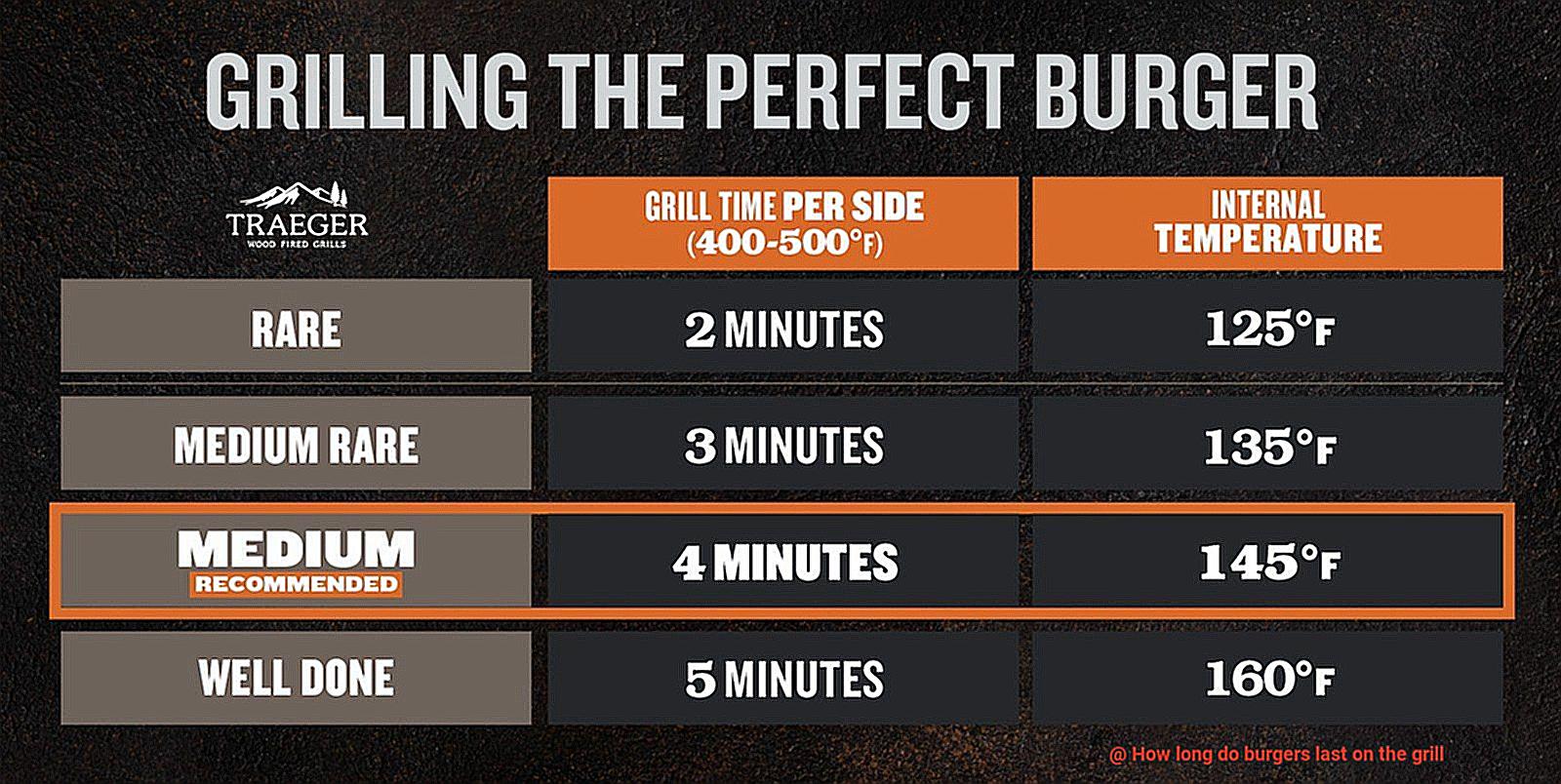
It’s also essential to consider the type of meat you’re using. Different types of meat cook at different rates and require varying cooking times. For example, ground beef with higher fat content will cook faster than leaner ground beef. Therefore, adjust your cooking time according to the type of meat you’re using.
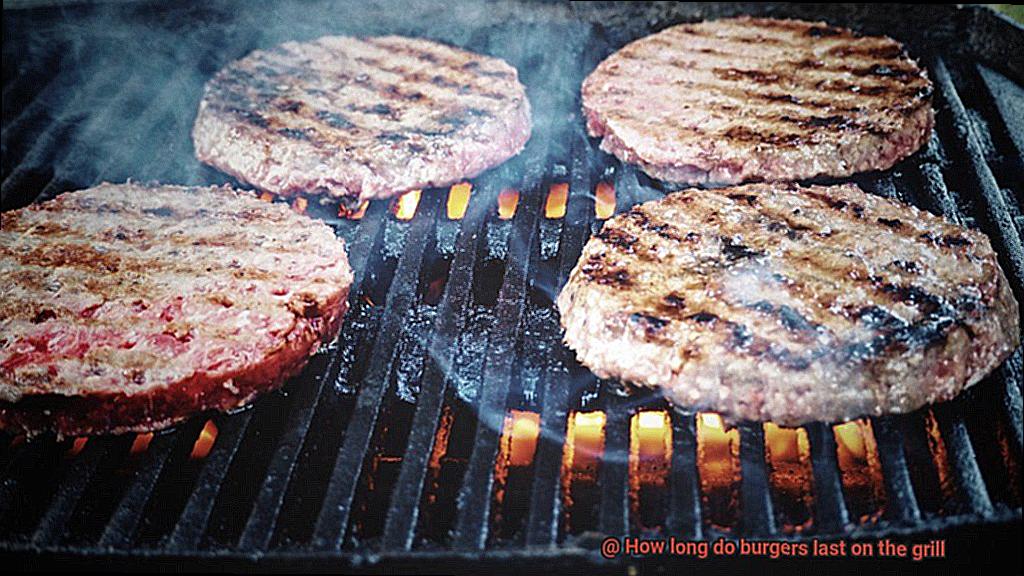
How Hot Should the Grill Be for Grilling Burgers?
Well, let’s start with the foundation – the temperature of your grill. As a seasoned expert on grilling burgers, I can confidently say that maintaining a temperature range between 350-400 degrees Fahrenheit is key to achieving perfectly grilled burgers.
To achieve this ideal temperature range, it’s crucial to preheat your grill for at least 10-15 minutes before placing the burgers on it. This ensures that the grill grates heat up evenly and prevents those pesky sticking situations.
But, there’s more to it than just preheating your grill. The thickness of your burger patty also plays a significant role in determining the cooking time and temperature. Thicker patties will require a lower heat and longer cooking time, while thinner patties may need a higher heat and shorter cooking time. So keep this in mind when preparing your burger patties.
Now, how do you know if your burgers are cooked to perfection? You guessed it – use a meat thermometer. Insert it into the thickest part of the patty, and the internal temperature should reach 160 degrees Fahrenheit for beef burgers and 165 degrees Fahrenheit for turkey or chicken burgers.
In summary, to achieve mouth-watering, juicy burgers every time, remember to:
- Maintain a temperature range of 350-400 degrees Fahrenheit
- Adjust cooking times based on patty thickness
- Preheat your grill for at least 10-15 minutes
- Use a meat thermometer to ensure they are fully cooked
What Types of Meat Can be Used for Burgers?
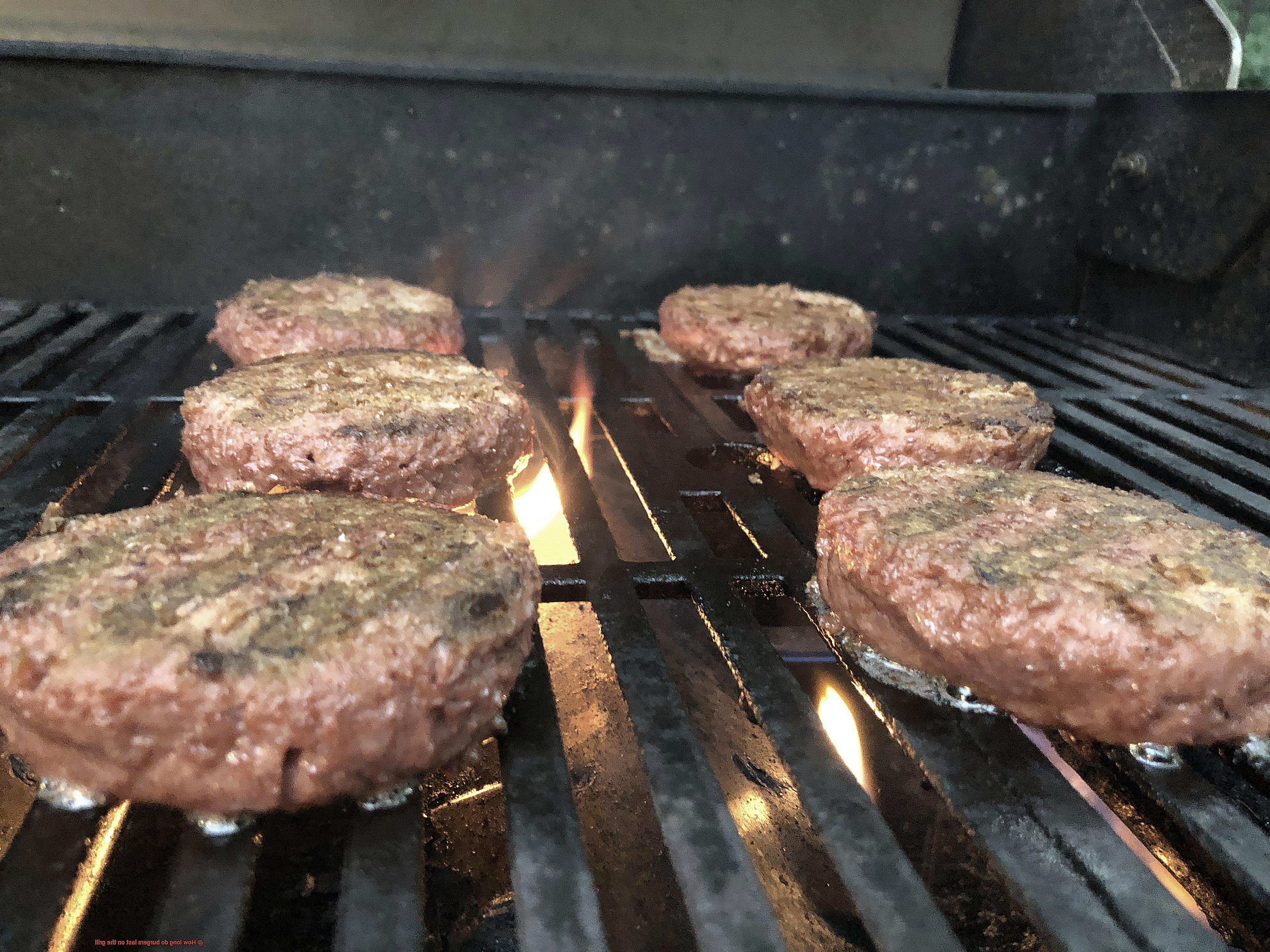
Burgers are a quintessential American dish, and choosing the right meat is key to making them taste amazing. While beef may be the most common choice for burgers, there are several other options to consider that can add unique flavor and texture to your burger patty.
Beef
Ground beef is the classic meat used for burgers, and it comes in different cuts like chuck, sirloin, brisket, and round. Ground chuck is a popular choice due to its high fat content of around 20%, which keeps the meat moist and tasty while cooking. On the other hand, sirloin or round are leaner options but may result in drier burgers.
Turkey and Chicken
For those who want a leaner option, ground turkey or chicken can be used for burgers. However, since these meats have lower fat content, they tend to dry out quickly on the grill. To prevent this, adding spices or mixing in diced vegetables can help keep the meat moist and flavorful.
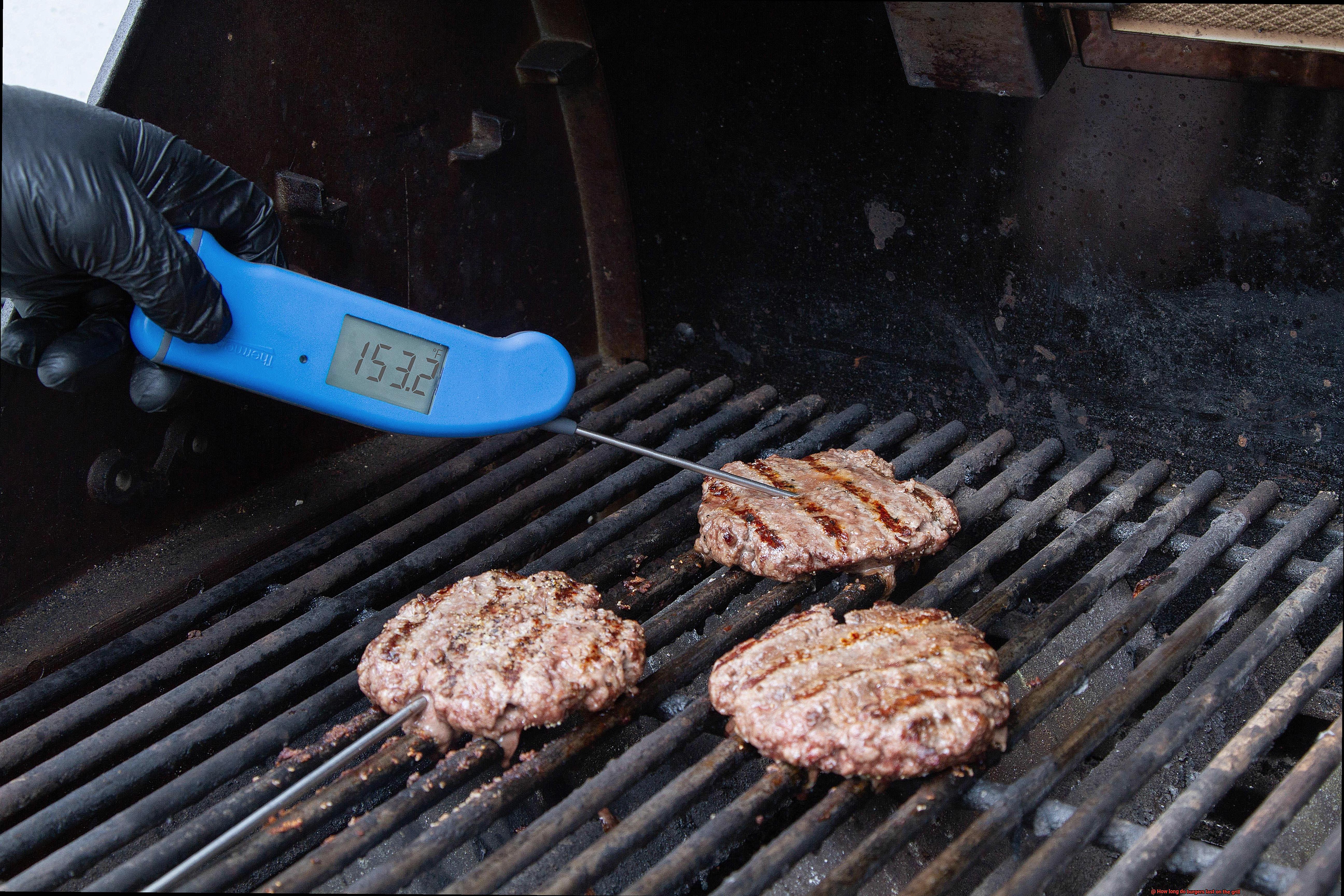
Pork
Ground pork is an excellent choice for those who want a stronger flavor than beef or chicken. It is also a great option for those with dietary restrictions as it’s gluten-free and low in carbohydrates. However, it’s important to choose a cut with moderate fat content to avoid dryness.
Lamb
Ground lamb has a unique flavor profile that’s richer and gamier than beef. For those who love bold flavors, lamb burgers are an excellent option. Lamb pairs well with strong spices like rosemary or cumin, which can accentuate its delicious taste.
Bison
Bison burgers are perfect for those who want a healthier option without sacrificing flavor. Bison meat is leaner than beef but still has a rich taste that’s similar to it. Bison pairs well with milder spices like garlic or onion powder to bring out its natural flavor.
Vegetarian Options
For those who don’t eat meat, black bean or veggie burgers are fantastic options. They’re made with different ingredients and spices to create a delicious and satisfying burger patty. Veggie burgers can be customized to suit individual taste preferences by adding different vegetables or spices.
What is the Recommended Internal Temperature to Ensure Safety?
Summertime brings with it the aroma of sizzling burgers on the grill. However, before indulging in that juicy patty, ensure that it’s cooked to a safe internal temperature. The recommended temperature for ground beef, including burgers, is 160°F (71°C). This temperature will kill any harmful bacteria like E. coli and Salmonella, making your meal safe to eat.
But how can you guarantee that your burger has reached this temperature? The answer lies in using a meat thermometer. Ensure that you insert the thermometer into the thickest part of the burger, keeping away from any bones or fats. Be sure to check each burger individually as they may cook at different rates.
While it’s tempting to rely on the color of the burger as an indicator of doneness, it can be misleading. Even if the burger looks brown on the outside, it may still be undercooked on the inside. Therefore, using a meat thermometer is the only way to ensure that your burgers are fully cooked and safe to eat.
In addition to cooking burgers to a safe internal temperature, handling them safely before and after cooking is crucial. Always remember to wash your hands and any surfaces that come into contact with raw meat with hot soapy water before and after handling. Leaving cooked burgers out at room temperature for more than two hours (or one hour if the temperature is above 90°F) can increase bacterial growth and pose health risks. Store cooked burgers in the refrigerator or freezer promptly after cooking.
To sum up, prioritize safety while grilling burgers by cooking them to a safe internal temperature of 160°F (71°C) and handling them safely before and after cooking. Here’s a quick list of these safety measures:
Tips and Tricks for Grilling Perfect Burgers Every Time
Burgers are a staple of summer grilling, but getting them just right can be a challenge. To help ensure that your burgers turn out perfectly every time, here are some expert tips and tricks:
Timing is Everything
When it comes to grilling burgers, timing is everything. Overcooking or undercooking can ruin the perfect burger. The key is to find the right balance between cooking time and temperature.
To start, make sure your grill is hot before placing the burgers on it. Preheat the grill for at least 10-15 minutes to ensure that it reaches the desired temperature. For gas grills, set it to high heat and let it heat up. For charcoal grills, wait until the coals are glowing red.
Once you’ve placed your burgers on the grill, avoid flipping them too often. Flipping them once is enough, as constantly flipping them can cause the juices to escape and result in a dry burger. When grilling thicker burgers, it’s also important to create a small indentation in the center with your thumb or the back of a spoon. This will prevent the burger from puffing up in the center and ensure even cooking.
Cooking Time and Temperature
The cooking time for burgers on the grill can vary depending on their thickness and desired level of doneness. A general rule of thumb is to cook them for 4-5 minutes per side for medium-rare, 5-6 minutes per side for medium, and 6-7 minutes per side for well-done. To ensure that they are cooked to your liking, use a meat thermometer to check their internal temperature. For medium-rare, it should be around 130-135°F, for medium around 140-145°F, and for well-done around 160°F.
Seasoning
Finally, don’t forget about seasoning. Whether you prefer a simple salt and pepper blend or a more complex spice mix, be sure to season your burgers generously before grilling for maximum flavor. A sprinkle of seasoning can go a long way in elevating the taste of your burger.
Resting Time
After taking your burger off the grill, let it rest for a few minutes before serving. This will allow the juices to redistribute and result in a juicier burger. It might be tempting to bite into your burger right away, but patience is key to achieving that perfect burger.
What are Some Common Mistakes People Make When Grilling Burgers?
But, unfortunately, many people make common mistakes when grilling burgers that can result in dry, overcooked, or undercooked patties. Fear not. We’ve got you covered with tips to help you avoid these blunders and grill the perfect burger every time.
Firstly, preheating your grill is crucial. Many people make the mistake of putting their burgers on a cold grill, leading to uneven cooking and sticking. Preheat your grill for at least 10-15 minutes before grilling to ensure even cooking and prevent your burgers from sticking to the grates.
Another common mistake is using the wrong type of meat. Burgers made with lean meat may seem like a healthier option, but they can quickly become dry and tough if overcooked. Opt for ground beef with a fat content of at least 20% to ensure juicy and flavorful burgers. Additionally, shaping your patties too thin or too thick can affect cooking time and result in unevenly cooked burgers. Aim for a thickness of around ¾ inch to ensure even cooking.
Flipping your burgers is another crucial step in grilling burgers. Flipping them once or twice during the cooking process is enough to ensure even cooking. However, flipping them too much can cause them to fall apart, while not flipping them enough can result in uneven cooking.
Lastly, resist the urge to press down on your burgers with a spatula while cooking. This common mistake can cause all of the juices to be squeezed out of the burger, resulting in dry and flavorless patties. Instead, let your burgers cook undisturbed for best results.
qucKpkIxalk” >
Conclusion
In conclusion, grilling burgers is more than just a cooking method; it’s a communal experience that brings people together. However, to ensure that your burger party doesn’t end in disaster, it’s crucial to consider several factors that affect cooking time and temperature.
The thickness of your patty, the type of meat you use, and the grill temperature all play significant roles in determining the ideal cooking time for your burger. But don’t forget about using a meat thermometer to make sure your burger has reached a safe internal temperature.
To achieve burger perfection every time, preheat your grill for at least 10-15 minutes and adjust cooking times based on patty thickness. Resist the urge to flip or press down on your burgers too much – let them cook undisturbed until they’re ready to be flipped. And remember, seasoning before grilling and letting them rest after cooking can take their flavor up a notch.
Avoid common mistakes such as using lean meat or shaping patties too thin or thick. Flipping too often or not enough can also lead to uneven cooking.

